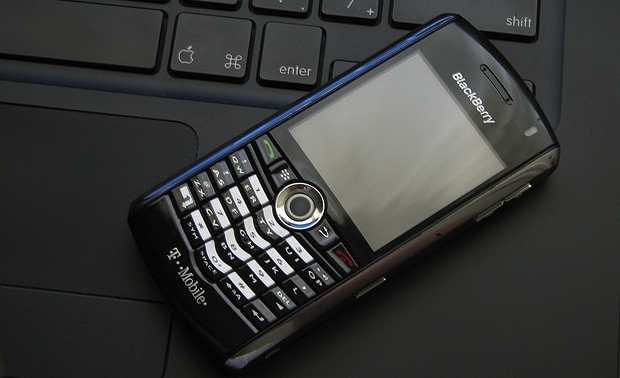As consumers flock for iPhones, the enterprise still needs BlackBerry

With Apple's next-generation mobile operating system firmly making its mark on end-users, iMessage features as one of the more prominent features of iOS 5. Though, little is really known about the application's back-end security and encryption features.
Compared to its nearest competitor, BlackBerry Messenger, just as little is known about its encryption methods, only that "it is" and that even governments cannot crack it.
But amid the disruption to BlackBerry services last week, the 'BlackBerry mass exodus' has not prevailed as many had expected. Nevertheless, the outage has pushed some high-profile businesses and enterprises into looking for alternatives to the BlackBerry, as the company still faces heavy scrutiny after the global disruption.
Without doubt, the very core of the BlackBerry service is its highly encrypted messaging capabilities and government-grade security. While Research in Motion leads in both instant messaging and email, Apple only scores a single point on the secure instant messaging front.
Enterprises therefore have little choice but to stick with the seemingly 'unreliable' service -- rather than invest in brand new contracts, data plans and mobile hardware, in efforts to break away from the BlackBerry manufacturer.

iMessage, Apple's mobile instant messenger, built right into iOS 5, still centers around secure and encrypted messaging -- just as BlackBerry Messenger as its nearest rival does.
BlackBerry Messenger users can currently only communicate over the service to other BlackBerry users. Equally, Apple iOS 5 users who take to iMessage can only communicate with those on other iOS 5 devices.
But marketshare figures show, though BlackBerry has a wide spread of phones, it commands only a fraction of that compared to iOS powered devices. With the recent iOS 5 release, within a month or two we shall see iOS 5 dominating the BlackBerry mobile operating system in global share figures.
With a greater reach of customers set to use the new iMessage service, it could within the coming weeks take the crown from Research in Motion, which had BlackBerry Messenger as one of the center-pieces to its younger, consumer market.
Though Apple has yet to release -- if it ever will -- a secure and encrypted email service, for now iOS 5 users and those on corporate trials can use iMessage only as a slimmed-down secure communications' option.
Having said that, iMessage still relies on Apple's infrastructure being maintained and not going down. While it has recently been reported that iOS and Android phones could not be crippled like how the BlackBerry was, due to the separation of infrastructure, iMessage still replies on Apple's back-end systems to function.
As Apple moves forward with its new iOS 5 software, in spite of BlackBerry's global outage last week, the temptation to rush and switch providers is clear across industries. Enterprises still have secure email messaging with BlackBerrys, while Apple can only provide secure instant messaging.
Consumers, for reasons of security, privacy and encrypted messages, can and should make the jump should they wish to. But enterprises and business cannot afford, for sake of retaining their industry secrets and countering corporate espionage, to move away from their BlackBerry service until an equal or greater service hits the market.
Related:
- BlackBerry's outage post-mortem: Where did it all go wrong?
- RIM's BlackBerry outages come at worst possible time
- iCloud vs. Exchange, Gmail: Pick your choice wisely
- David Gewirtz: Making Android secure enough for secure government work
Across the CBS Interactive network:
- TechRepublic: 22% of iPhone 4S buyers are platform converts
- CNET: Activist RIM investor calls for sale, CEO shake-up
- BlackBerry Messenger vs. Apple's iMessage
- CBS News: Users give RIM raspberries over BlackBerry glitches
- BlackBerry maker headed towards failure?
- BlackBerry’s 3-day outage over, maker says
- ZDNet Asia: BlackBerry outage not in RIM’s favor